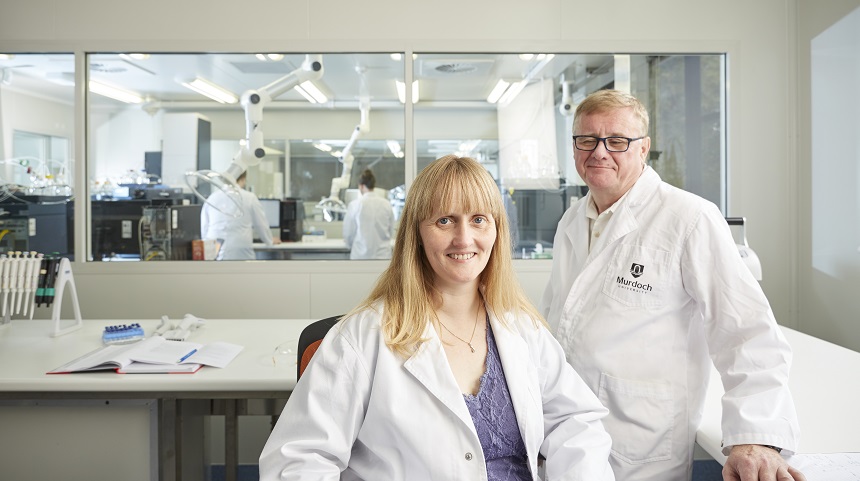
The Australian National Phenome Centre joins forces with Bruker Corporation and Telethon to investigate the onset of many major diseases from early childhood and improve understanding of the metabolic phenotyping of early life exposures.
The new research project will provide important insight into the metabolic pathways and inflammatory profiles in pregnant women, infants and young children that may predict early onset of childhood conditions, especially those associated with allergic diseases, predisposition for obesity and mental health.The three-year research project to be undertaken by the Australian National Phenome Centre (ANPC) at Murdoch University is being jointly funded by Bruker Corporation and Telethon.
Director of the ANPC and Pro Vice Chancellor of the Health Futures Institute, Professor Jeremy Nicholson, said the future course of adult disease can be set early in childhood but a lack of detailed molecular research of infants hindered the understanding of the cause and development of many major diseases in individuals.
"Compared to adult cohorts, there has been insufficient research into the metabolic and immunological development of children. Environmental factors that operate during pregnancy and after birth can cast a long shadow later into an individual’s life,” Professor Nicholson said.
We believe there are phenotypic predictors of non-communicable diseases in early life which reflect early environmental exposures and behaviours – of both mother and child – including nutrition, sleep, physical activity, outdoor interactions, stress, and other exposures.
“As a result, we believe specific phenotypic abnormalities may be identified that can be targeted by new interventions and prove valuable as monitoring tools in interventional trials."
Part of the project involves miniaturisation of the laboratory procedures to deal with small samples often associated with children’s studies. These diseases included diabetes, cardiovascular disease, allergies and cancer.
“If we disregard the genetic determinants that we hand on to subsequent generations, we are still left with capacity to shape the future health of an individual, even before it is born,” Professor Nicholson explained.
“Many actions taken during pregnancy, or in the first weeks after a baby is born, set lifelong patterns for metabolic behaviour. The recognition of early life exposures as prime causal determinants of life-long health, and indeed, the health of the next generation, has tremendous potential to improve population wellbeing.” Pro-Vice Chancellor of the Health Futures Institute, Professor Jeremy Nicholson, and Director of the Centre For Computational and Systems Medicine, Professor Elaine Holmes, at the Australian National Phenome Centre.
Pro-Vice Chancellor of the Health Futures Institute, Professor Jeremy Nicholson, and Director of the Centre For Computational and Systems Medicine, Professor Elaine Holmes, at the Australian National Phenome Centre.Professor Elaine Holmes, Premier’s Fellow and Director of the Centre for Computational and Systems Medicine at Murdoch University, said the premise that metabolic phenotypes are both statistically and biologically connected to disease risks and treatment outcomes provided the opportunity to understand the influence of early life exposures on later health outcomes.
“Critical to understanding the potential of adverse health outcomes later in life, it is important to have sufficient metabolic phenotyping of infants,” Professor Holmes said.
“Our research project will identify appropriate analytical methods to undertake reliable infant phenotyping given the volume-limited sample sizes typical in children’s samples.
"This will enable us to create and curate metabolic databases of children’s plasma and urine samples combining anthropometric and sociodemographic data, to generate phenotypic profiles.
“This will help us to characterise the impact of the maternal and early life environment on downstream health.”
Dr Iris Mangelschots, President of the Applied, Industrial and Clinical Division at Bruker BioSpin, said he was proud to support the new research.
"We are strongly committed to supporting Professor Nicholson and his team financially, scientifically and technically. The comprehensive clinical research plan at Murdoch University into metabolic biomarker patterns of diseases, prognosis and treatment response is exceptional."
"We hope that the team can find evidence-based clinical protocols to better understand many major diseases during early childhood as well as the metabolic phenotyping of early life exposures.”Professor Nicholson said the research would also provide insight into the possible impacts of COVID-19 on downstream maternal and infant health.
Murdoch University Vice Chancellor Eeva Leinonen acknowledged the contributions of Bruker and Telethon to enable to research to go ahead.
“Philanthropy is integral to enabling so many important research projects to proceed, many of which lead to translational, life changing and indeed, world changing outcomes. We are grateful to Bruker and Telethon for their funding to this most important research project.”
Phenomes
A person's phenome is a dynamic fingerprint of their unique biology resulting from the complex interactions between environmental and genetic factors. Phenomics is the study of how the environment and a person’s lifestyle interacts with their genes to influence their health and risk of disease. Metabolic phenotyping is the analysis of biological tissue and fluid to uncover the specific interactions of genetic, environmental and lifestyle factors at a molecular level.Read more on COVID-19 research at the ANPC.